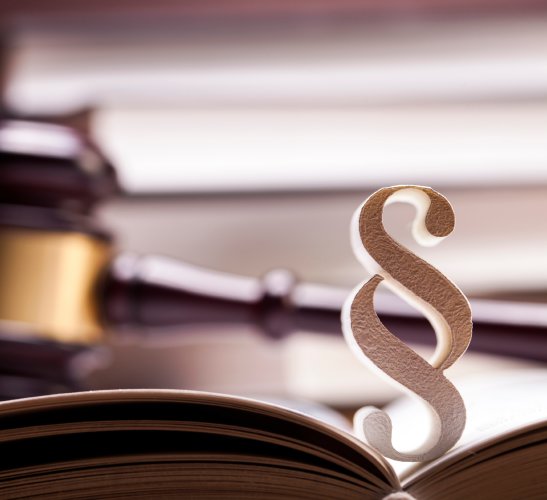Lov om universiteter og høyskoler
LOV-2024-03-08-9
§ 1-1. Formålet med universiteter og høyskoler
c. formidle kunnskap om virksomheten og utbre forståelse for prinsippet om akademisk frihet og bruk av vitenskapelige og kunstneriske metoder og resultater, både i undervisningen av studenter, i egen virksomhet for øvrig og i offentlig forvaltning, kulturliv og næringsliv
§ 2-2. Akademisk frihet og ansvar
Universiteter og høyskoler skal fremme og verne akademisk frihet og dem som utøver den. Institusjonene skal sikre at undervisning, forskning og faglig og kunstnerisk utviklingsarbeid holder et høyt faglig nivå og utøves i samsvar med anerkjente vitenskapelige, kunstfaglige, pedagogiske og etiske prinsipper.
Universiteter og høyskoler har ellers rett til å utforme sitt eget faglige og verdimessige grunnlag innenfor de rammene som er fastsatt i eller med hjemmel i lov.
Universiteter og høyskoler kan ikke gis pålegg eller instrukser om
a. læreinnholdet i undervisningen
b. innholdet i forskningen eller i det kunstneriske og faglige utviklingsarbeidet
c. innholdet i formidlingen
d. individuelle ansettelser eller utnevnelser.
Den som underviser ved et universitet eller en høyskole, har et selvstendig faglig ansvar for innholdet og opplegget av undervisningen innenfor de rammene som institusjonen fastsetter, eller som er fastsatt i eller med hjemmel i lov.
Den som har forskning eller faglig eller kunstnerisk utviklingsarbeid som del av arbeidsoppgavene, har rett til å velge emne og metode for forskningen sin eller utviklingsarbeidet sitt innenfor de rammene som er fastsatt i ansettelsesforholdet eller en særskilt avtale.
Den som er omfattet av fjerde eller femte ledd, har rett til og faglig ansvar for formidling.
Universiteter og høyskoler skal sørge for åpenhet om resultatene fra forskning og faglig eller kunstnerisk utviklingsarbeid. Den som har arbeidsoppgaver som nevnt i femte ledd, har rett til å offentliggjøre resultatene sine og skal sørge for slik offentliggjøring. Det relevante forskningsgrunnlaget skal stilles til rådighet i samsvar med god skikk på det aktuelle fagområdet. Institusjonen kan samtykke til utsatt offentliggjøring når legitime hensyn tilsier det. Det kan ikke avtales eller fastsettes varige begrensninger i retten til å offentliggjøre resultater utover det som er fastsatt i eller med hjemmel i lov.
English translation:
Section 1-1. Purpose of universities and university colleges
c. disseminate knowledge of the institution’s activities and promote an understanding of the principle of academic freedom and application of scientific and artistic methods and results in the teaching of students, in the institution’s own activities as well as in public administration, in cultural life and in business and industry
Section 2-2. Academic freedom and responsibility
Universities and university colleges shall promote and safeguard academic freedom and those who exercise it. The institutions shall ensure that teaching and research, and academic and artistic development maintain a high academic standard and are carried out in accordance with recognised scientific, artistic, educational and ethical principles.
Universities and university colleges are otherwise entitled to formulate their own academic and value-based foundations within the frameworks prescribed in or pursuant to statute.
Universities and university colleges may not be issued orders or instructions regarding
a. the academic content of their teaching;
b. the content of the research, and academic and artistic development;
c. the content of the communication;
d. individual hirings or appointments.
Any person who teaches at a university or university college has an independent academic responsibility for the content and organisation of the teaching within the frameworks determined by the institution or prescribed in or pursuant to statute.
Any person whose duties include research, and academic and artistic development has the right to choose the subject and method within the frameworks set out in the terms of employment or a special agreement.
Any person covered by the fourth or fifth paragraph has the right to and professional responsibility for communication.
Universities and university colleges shall ensure transparency regarding the results of research, and academic and artistic development. Any person who has duties as mentioned in the fifth paragraph is entitled to publish their results and shall ensure such publication. The relevant research basis shall be made available in accordance with good practice in the relevant subject area. The institution may consent to deferred publication when legitimate considerations so warrant. No agreement may be made or permanent restrictions imposed on the right to publicise results beyond what is prescribed in or pursuant to statute.

